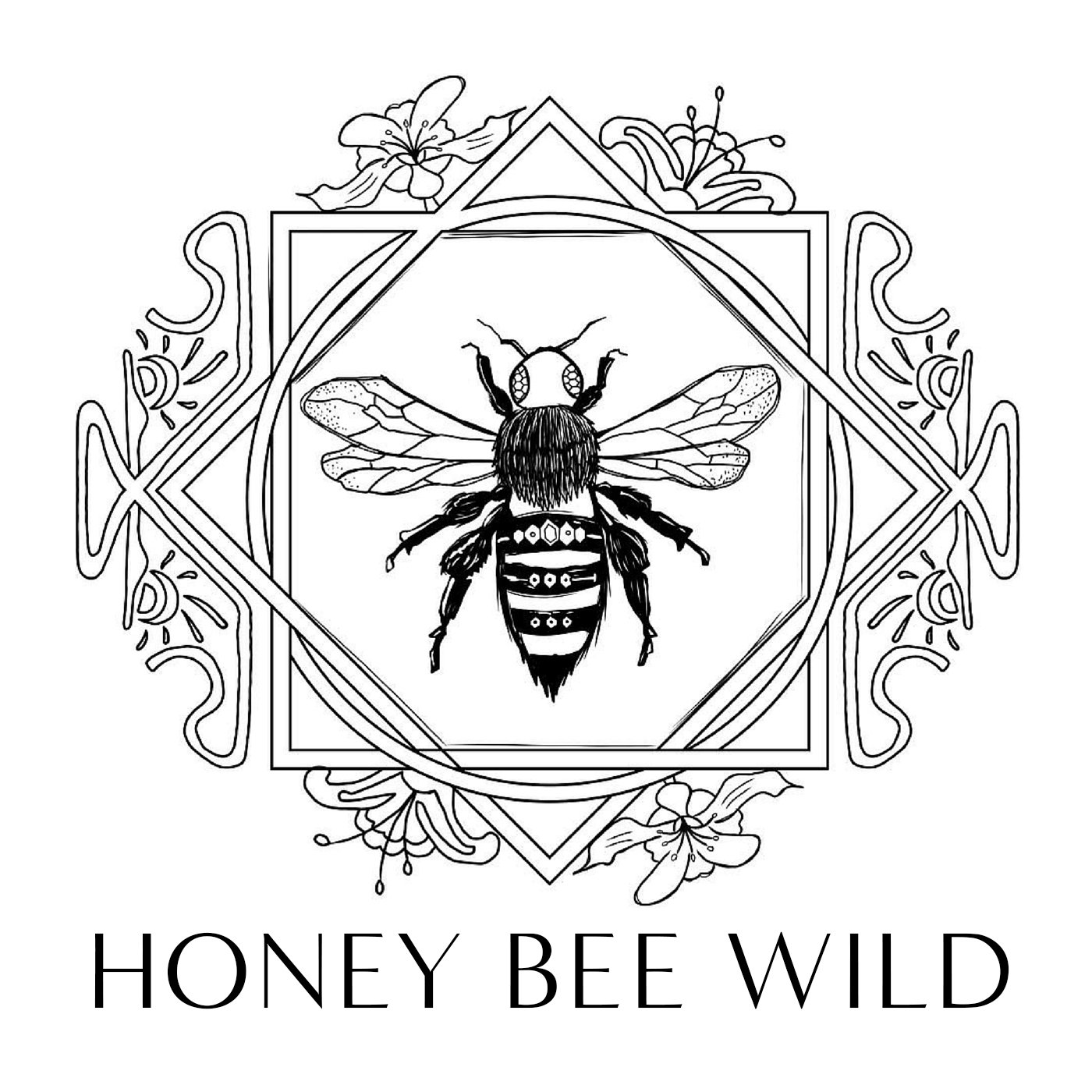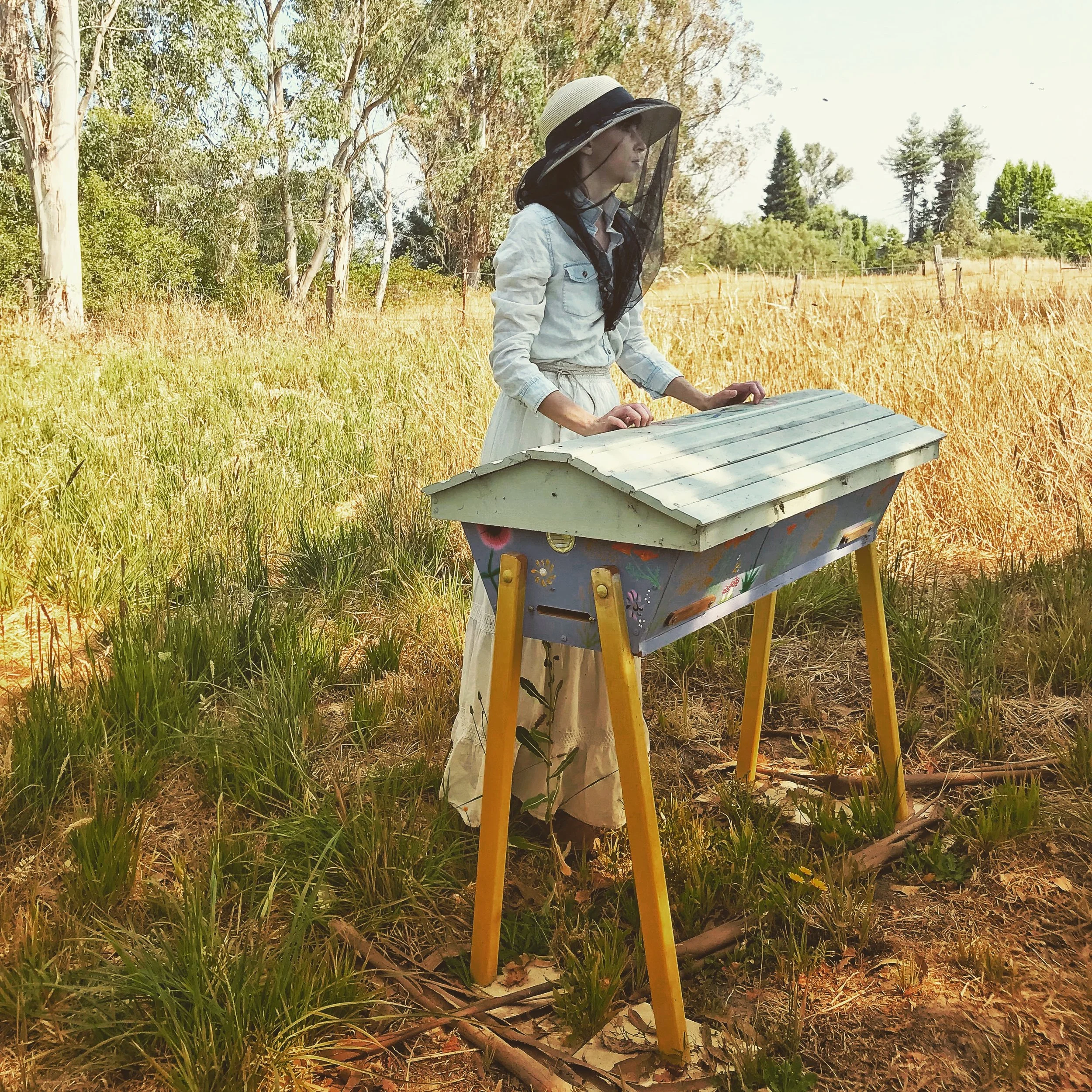Feminist Beekeeping
I’d like to take a moment to talk about why Feminist Beekeeping is a thing at all.
First, let’s understand a few things.
1. We are all struggling with language and the meaning behind words.
.
As a natural beekeeper part of my job is to rework the language around beekeeping. Changing words like “worker bee”, to “female bee” or “sister bee” helps to shift our mentality away from the industrial era model of beekeeping which equates bees to factory workers. Similarly, working with empowering women and celebrating the essence of the feminine in all things/genders requires some tricky navigation around the rocky shoals of language.
2. Feminism is not exclusive to women.
I know this is basic feminism 101, but men can be feminists too.
Let’s review:
.
fem·i·nism
noun
the advocacy of women's rights on the basis of the equality of the sexes.
fem·i·nist
noun
1.
a person who supports feminism
Okay so we have a dictionary definition. That’s a start, but also riddled with pot holes. The point is, you can advocate for the equality of the sexes in all areas of your life, including beekeeping. You can be an advocate for how women are treated in this industry, etc etc
3. Feminist is not a bad word.
.
If you look back through the history of language, many words denoting bad, angry, evil or weak characteristics have their roots in gender shaming. Look up left-handed, sinister, witch, wicked.
Our modern stereotype of the angry, man-hating feminist is but one example of the demonizing of the feminine. You don’t have to be an angry woman to be a feminist. You are also completely allowed to be angry and a feminist. Just saying.
Feminine is derived from Latin ‘femina’ meaning "woman, female," literally "she who suckles”. As in, she who bears children and suckles them at her breast. So in its oldest sense, feminine means woman. The word has gone through centuries subjected to patriarchy and is now associated with qualities of the “weaker” sex. Qualities associated with delicacy, male-attracting, handkerchief waving, the good Christian wife, being soft spoken, being shrill, being emotional etc.
However, the term has been reclaimed by women and men alike to denote an energy or quality that is not solely based on biology, but can be understood as something that exists within all things and people. This type of feminine is often paired with other words to differentiate it. Sacred feminine. Divine feminine. Feminine principle. It has a mirror energy we call sacred masculine, divine masculine, or masculine principle.
These terms are adopted social constructs that help give us language in a dualistic world, but they don’t in an of themselves mean woman or man. We all have these intertwining, nuanced, full-spectrum internal forces. We play with the terms masculine and feminine as they are expressed from within us to help us better express our own wholeness, REGARDLESS OF GENDER.
When I talk about the feminine or the sacred feminine and its importance in the beekeeping conversation, I am referring to this: in the cultures of the ancient world (namely before classic Greek and Roman, where our language and much of our western social structure comes from) there was once a time of predominantly matriarchal cultures. This did not mean the inverse of patriarchy, where women dominated men (that’s patriarchal thinking), but rather cultures that honored and celebrated that all life comes from woman. These cultures revered the life-giving qualities of woman: breast milk, pregnant body, maiden/mother/crone, cyclical phases, etc. The earth was seen as the mother of all peoples because the planet literally provides us with life. Certain creatures and aspects of nature were also associated with life-bringing: cow/bull, moon, ocean, rivers, bees, and serpents, to name a few. Furthermore, what brought life could also consume and destroy (floods, decomposition, winter), which is where we get the many goddess myths associated with both these qualities. Hathor/Sehkmet, Kore/Persephone, Brigid, Kali, etc.
Enter the slow transition over to Patriarchy, which brought with it not just a cultivation of nature (hunter/gatherer to agrarian transition), but also a dominance over nature. Blend that with a shift to male dominant gods and eventually monotheism, and the power over women became synonymous with power over the land. I’m aware that is a very short, crude surmising of a very big topic.
Now we have in our lexicon a number of negative associations with anything to do with the life-bringing/life-consuming ebb and flow of that which is associated with woman. Furthermore, our dominance over nature continues in its most abhorrent destructive expression. We have experienced a terrible, life-threatening loss of the sacred associated with earth and nature as our life-bearing mother. This dominance-over mentality (let’s just remember this is also part of rape culture) is deeply imbedded in conventional beekeeping practices. It is found in our hive designs, our methods, our chemical uses, our thought and our language around one of the creature most heavily associate with the sacred feminine throughout time.
So, does feminism have a place side by side beekeeping? You bet it does.

